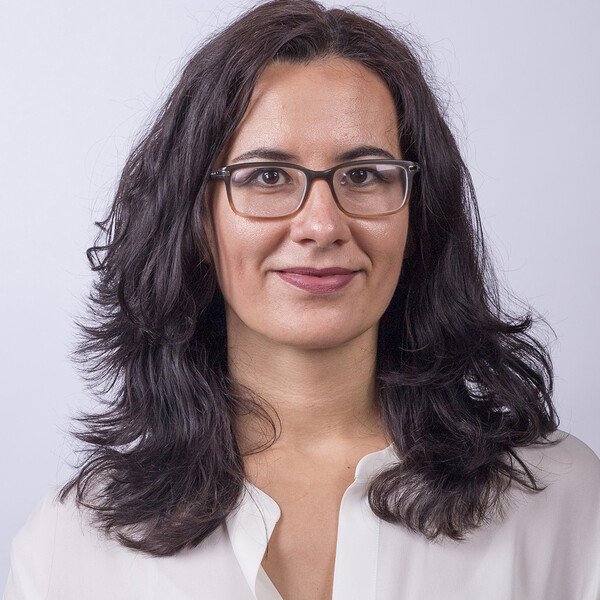Main Second Level Navigation
Milica Radisic
PhD, FRSC

Qualification
- Harvard-MIT Division of Health Science and Technology, Postdoctoral Fellow, 2005.
- Massachusetts Institute of Technology, Ph.D., 2004.
- McMaster University, B.Eng., 1999.
MY RESEARCH OVERVIEW (GO TO SCIENTIFIC OVERVIEW)
The one-size-fits-all paradigm, where a therapy is tested without considering the genetic background of patients, is thought to hamper progress towards cures. Dr. Radisic’s mission is to deliver on the promise of personalized medicine through three main objectives: developing organ-on-a-chip models of 1) heart and 2) kidney disease using patient stem cell and serum samples; and 3) developing next generation technologies using 3D printing and injection molding that will speed up production of organ-on-a-chip devices. She will apply these devices to discover new therapeutics for heritable arrhythmia, myocarditis resulting from COVID-19 and antibody-mediated kidney transplant rejection.
Visit Dr. Milica Radisic's Discover Research profile to learn more.
SCIENTIFIC RESEARCH OVERVIEW
Organ-on-a-chip engineering
Our work laid foundations to the field of organ-on-a-chip engineering through technologies such as Biowire, AngioChip and inVADE platform. Microfabrication and 3D printing technologies are at the core of what we do. We are relying on state-of-the art facilities in https://craftmicrofluidics.ca/ to combine hot-embossing and 3D printing to scale-up production of these organ-on-a-chip devices for wide-spread use. We are developing systems that mimic physiology of the heart, kidney and vasculature for the purpose of modeling human disease and discovering better and more effective drugs. Learning how to incorporate naturally occurring fractal and chaotic cues into the organ-on-a-chip systems is the next frontier we are tackling. Together with our hospital based colleagues, we are working with patient derived iPSCs to mimic diseases such as hypertrophic cardiomyopathy, dilated cardiomyopathy and cardiac fibrosis. We are building glomerulus-on-a-chip and proximal tubule-on-a-chip systems that enable us to study what causes rejection of transplanted kidneys and how to develop new drugs that can remedy this problem. We are infecting our organs-on-a-chip with SARS-CoV-2 in the CL3 facility to learn the mechanisms behind covid19 triggered inflammation, vascular dysfunction and myocarditis.
Bioinspired and electroactive polymers
We synthesize new biodegradable and biocompatible polymers based on small molecules found in the human body, to tailor specific functions, such as immunomodulation, elasticity and conductivity. Through biofabrication, we are advancing scaffold technologies in both cardiac tissue engineering and organs-on-a-chip using these new materials. Using these approaches we developed technologies such as Injectable Tissue, that enable non-invasive delivery of fully functional tissues into the body through a keyhole and Hook-in-Tissues which enable stacking and instantaneous assembly of fully functional tissues. Most groups 3D print structures from hydrogels, which deform as a result of cell tractional forces, or rigid polymers, which are too stiff for soft tissue applications. We are pioneering 3D printing of designer elastic biopolymers to create versatile granular and metamaterial structures for applications in soft tissue engineering.
Peptide modified materials for regenerative medicine
We are advancing our peptide based biomimetic and immunomodulatory materials for regeneration of tissues such as skin and immune system. We identified a unique peptide from angiopoitin-1 that enables collective cell migration and decreases inflammation in 6 different tissue models. Hydrogels and small molecules based on this peptide are now advancing in dermatological clinical trials for healing of skin after procedures such as laser face resurfacing and microneedling, for surgical wound healing and even to create anti-inflammatory therapies for covid19.
SELECT PUBLICATIONS
- A Platform for Generation of Chamber-Specific Cardiac Tissues and Disease Modeling. Zhao Y, Rafatian N, Feric NT, Cox BJ, Aschar-Sobbi R, Wang EY, Aggarwal P, Zhang B, Conant G, Ronaldson-Bouchard K, Pahnke A, Protze S, Lee JH, Davenport Huyer L, Jekic D, Wickeler A, Naguib HE, Keller GM, Vunjak-Novakovic G, Broeckel U, Backx PH, Radisic M. Cell. 2019. Feb 7;176(4):913-927.
- Flexible shape-memory scaffold for minimally invasive delivery of functional tissues. Montgomery M, Ahadian S, Davenport Huyer L, Lo Rito M, Civitarese RA, Vanderlaan RD, Wu J, Reis LA, Momen A, Akbari S, Pahnke A, Li RK, Caldarone CA, Radisic M. Nat Mater. 2017. Oct;16(10):1038-1046.
- Biodegradable scaffold with built-in vasculature for organ-on-a-chip engineering and direct surgical anastomosis. Zhang B, Montgomery M, Chamberlain MD, Ogawa S, Korolj A, Pahnke A, Wells LA, Massé S, Kim J, Reis L, Momen A, Nunes SS, Wheeler AR, Nanthakumar K, Keller G, Sefton MV, Radisic M. Nat. Mater. 2016. Jun;15(6):669-78.
